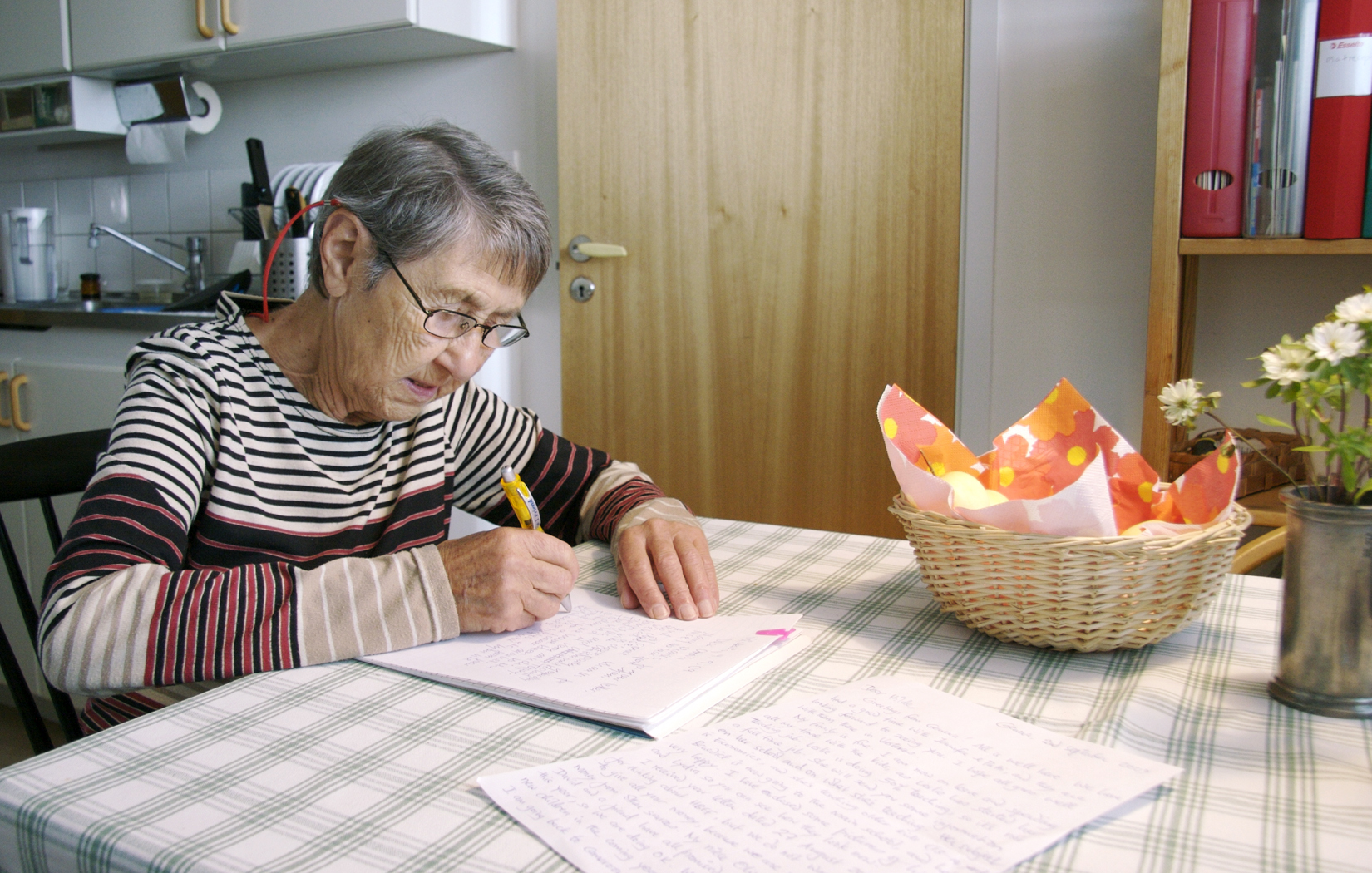Documentary “˜A Small Act’ set in Kenya leads to big charitable results

“A Small Act,” produced by alumna Jennifer Arnold, follows the monetary sponsorship of a young Kenyan student by a Swedish woman, Hilde Back (pictured above).
Courtesy of PATTI LEE
A small act
Today, 7:30 p.m.
Melnitz Hall "“ James Bridges Theater, FREE
By Jillian Molin
March 3, 2011 2:19 a.m.
According to alumna Jennifer Arnold, most recent documentaries about Africa have portrayed the continent’s people as subjects of pity, despite the filmmakers’ altruistic intentions.
When making her own documentary, “A Small Act,” Arnold said she made the conscious choice not to choose pity over partnership in her film’s depiction of Kenyan people. “A Small Act” will be screened in Melnitz’s James Bridges Theater tonight as part of UCLA’s weeklong celebration of the 50th anniversary of the Peace Corps. Arnold will attend a panel following the screening.
“A Small Act” follows the reverberation of a single act of kindness, specifically the monetary sponsorship of young Kenyan student Chris Mburu by a Swedish woman, Hilde Back. Now a human rights lawyer for the United Nations with a Harvard degree, Mburu decided to find his benefactor and create a Kenyan scholarship program in her name.
Despite a low budget, three-person crew and a weak battery in villages without electricity, Arnold and her team completed a film that has received positive critical response. In 2010, “A Small Act” received official selection at the Sundance Film Festival, where it premiered.
Moreover, Mburu’s scholarship, the Hilde Back Education Fund, has now made more than $750,000 in grants and donations.
According to the film’s co-producer and cinematographer, alumna Patti Lee, “A Small Act” played an unexpected role in helping the scholarship extend to the worldwide community.
“We wanted to just tell a good story, and we have the added bonus that it impacted a lot of people,” Lee said.
While shooting, because Arnold was not fluent in the Kenyan language of Kyuy, she hired a translator, whom she instructed to tap her shoulder once students discussed important topics like school fees or life goals. She would start the camera at that point.
This process sustained the first several weeks of shooting, until the footage that Arnold sent out to be translated finally returned; the conversations consisted not of education but of debates over whose turn it was to feed the cows. It turned out that the translator had tapped Arnold’s shoulder after the important topics were discussed.
“It was such a learning curve getting the shoot done,” Arnold said.
Arnold said studying under UCLA documentary film professor Marina Goldovskaya during her graduate studies at the School of Theater, Film and Television taught her to maintain open and honest relationships with the film and its subjects.
“I think (Goldovskaya’s) films are really honest, but you also feel that (Goldovskaya) herself is putting a huge piece of herself in the film,” Arnold said.
According to Arnold, she too feels a personal investment in the film’s theme of education and the people it depicts, having travelled to Nairobi on UCLA’s Education Abroad Program. It was there that she befriended Mburu’s cousin Jane, who first told her of Mburu’s story. According to Arnold, younger audiences are then able to relate to the Kenyan students, who also worried about grades and had crushes.
Arnold and her crew also unexpectedly captured the violence that erupted over the 2008 presidential elections in Kenya. According to Goldovskaya, in times of trouble, documentary is very much needed.
She said that with the current economic crisis and conflicts around the world, documentary has risen in prominence because of its ability to unite people ““ a theme of global interconnectivity she said she finds in “A Small Act.”
“In my documentary class, I always try to instill (the idea) that documentary is meant to not only entertain but to educate and to bring sides of life that are not known,” Goldovskaya said.
Audiences may be searching for the reality that documentary provides, one in which the perspectives of screenwriters, fictional characters or media conglomerates do not confine one’s viewing experience.
“I always loved telling stories, but I always thought of film as a way to have a cross-cultural experience or to travel without actually physically leaving your hometown,” Arnold said. “If it weren’t a documentary, people might not have that experience. They might not take it as truth.”


